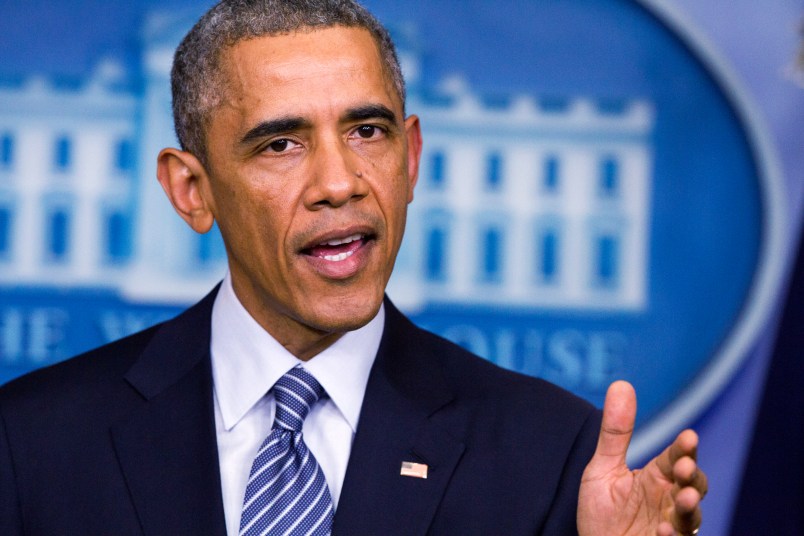The United States intends to open an official embassy in Cuba in the coming months, the White House announced Wednesday, part of a broader normalizing of diplomatic relations after the countries exchanged prisoners.
In a conference call with reporters, a senior administration official called the developments “the most significant changes to our Cuba policy in more than 50 years.”
“What we are doing is beginning the normalization of relations of the United States and Cuba,” the official said. “President Obama has long believed that engagement is a better tool than isolation and nowhere is that clear than in Cuba, where we have seen a policy of isolation fail for the last 50 years.”
The White House said that Obama would order Secretary of State John Kerry to begin discussions with Cuban officials on re-establishing diplomatic relations and high-level discussions and visits between the countries are expected to follow. The opening of the embassy will happen “as soon as possible,” an official said, noting that “the decision has been made” to normalize relations. The main issues to be resolved are logistical, the official said.
Other expected changes include increased travel permission for Americans to visit Cuba, an official review of Cuba’s current designation as a state sponsor of terrorism and increased coordination between the United States and Cuba on issues like disaster response and drug trafficking.
As for the Cuban embargo, officials said that the White House supports efforts to end it, but knows congressional approval for lifting it is unlikely in the immediate future.
Obama authorized high-level talks between U.S. and Cuban officials in the spring of 2013, senior administration officials said. Deputy national security adviser Ben Rhodes and Ricardo Zúñiga, senior director for the Western Hemisphere on the NSC staff, were the lead administration officials in the talks, which largely took place in Canada, but also included a meeting at the Vatican after Pope Francis urged the countries to “pursue closer relations,” an official told reporters. The first face-to-face discussions began in June 2013 and continued through November 2014. Obama and Cuban president Raúl Castro also spoke on the phone on Tuesday before the public announcements.
The officials emphasized that the United States would continue to focus on “democracy and human rights” in its relations with Cuba.
“We fully expect that we’ll continue to have strong differences, particularly on democracy and human rights,” an official said. “The fact that we are re-establishing diplomatic is frankly a better way in our view of advancing our interest and our values.”
Cuba released humanitarian worker Alan Gross and another unnamed U.S. intelligence asset who had been imprisoned for nearly 20 years, while the United States released three jailed Cubans, who were part of the group known as the “Cuban Five.”
Independent groups that have advocated for normalizing U.S. diplomatic relations with Cuba praised Wednesday’s news.
“This deal is the biggest diplomatic breakthrough between Cuba and the U.S. in 55 years,” Sarah Stephens, executive director of the Center for Democracy in the Americas, said in a statement. “This means our countries can work together on issues that affect both nations’ interest and put the results of this breakthrough to work in practical ways.”







Oh my Lord, the right is going to split a gut over this one! We should see them spontaneously passing out all over Washington and mass exoduses to Idaho and NH. Love it.
What’s the opposite of lame? Able Duck?
“We fully expect that we’ll continue to have strong differences, particularly on democracy and human rights”.
Ha Ha. Yeah but maybe now they’ll forgive us for running Black Site torture chambers in their country. Oh wait we paid them to do that.
Honey Badger.
Watch the heads of all the Gusanos in Miami explode, followed by the rest of the Moron Party, er, I mean the Republicans.